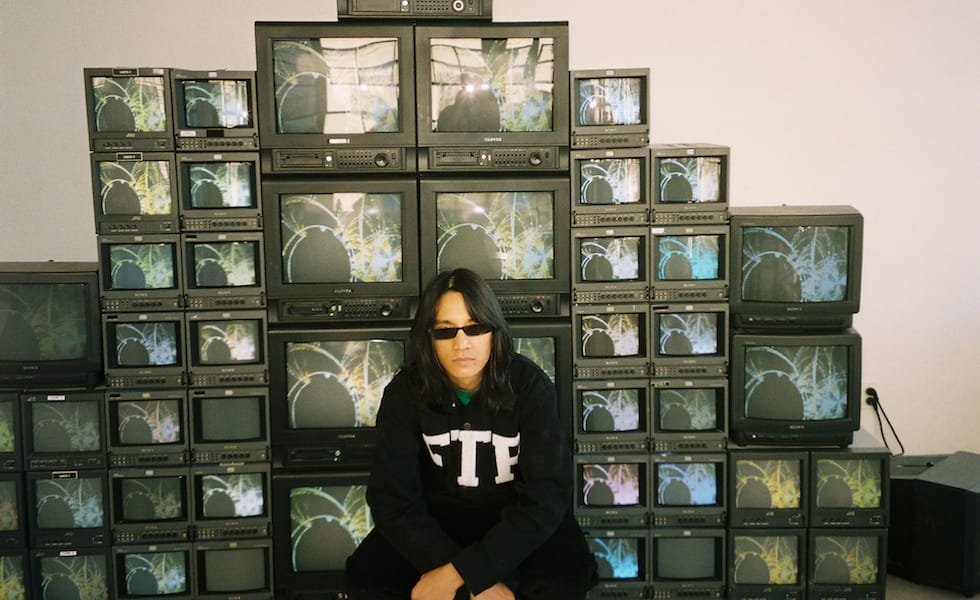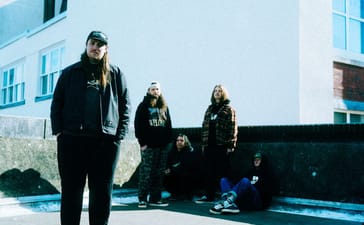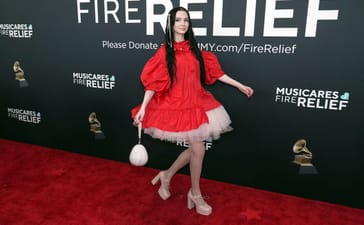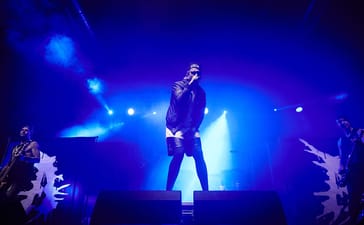It’s quite common these days that by the time we stumble upon a new artist, they’ve already amassed a legion of followers worldwide. The illusion is often that the artist is an overnight success, but that’s never the case.
Just because we didn’t get to witness their grind, that doesn’t mean it didn’t happen. And while there are inherent reputation benefits to the mysterious-rise-to-the-top narrative, it can also be an affront to the artist’s struggle.
Take, for instance, LA-via-Manila creative firebrand Eyedress. His latest single ‘Jealous’, from his 2020 album Let’s Skip to the Wedding, amassed 100 million streams in no time at all, two million of which came from Australians spinning the track on Spotify, and another 1 million from Australians streaming the YouTube clip. At first glance, this could appear like an overnight success, a blink and you might miss it kind of flight path.
But the story of Eyedress isn’t one of ease or comfort for that matter. It’s a story of struggle, of insurmountable distances, of failure, of overcoming failure, and yes, okay, fine — dizzying international success.
You started out on the other side of the world in Manila and now you’re here in LA. Is that a trip?
It’s my story. It’s important. It’s a beautiful thing because a lot of my experiences back home weren’t good and it definitely made me feel hopeless. I literally wanted to die because life was shit…
I was born in the slums of the third world and then I moved to Arizona in America and I didn’t realise it at the time, but I grew up in the hood, so I was a little rough around the edges and I’d get jumped. But I’m not going to say that’s an ugly thing. I still had a beautiful life. All of those challenges made me who I am.
That’s why now, I’m super humble about all this stuff happening. It just feels like maybe I deserve it finally because for half of my life I wasn’t catching no breaks. I had a lot of ups and downs and I never necessarily felt certain or confident about where I was going and what I was doing, but it was also all that I had. So I didn’t have no education or a family to fall back on. I just had to put my all into this.
Music saved my life in the corniest way. It did.
Does this feel like it’s happening very quickly or are you more so feeling that this has been the accumulation of years of hard work?
There’s been more fuel to the fire lately than ever in my life. It’s like instead of a lighter, they used a flamethrower. It’s also changed my life really quickly, because just a year ago, I was living in a tiny studio apartment, and now we’re in a house.
I’ve always felt like the underdog and underappreciated, so now it’s a bit weird. It’s kind of eerie, not in a bad way, but I’m a paranoid person, so I’m like, “Why?” Every day it’s like, “Why, why, why?” But it’s blissful. I don’t even do drugs anymore, but it’s like I’m peaking every day almost. I mean, I have my baby to normalise me. My son is always here to wake me up or to do something really inconvenient, but it’s great. It’s a good feeling.
A baby doesn’t give a fuck about how many streams you just got.
They’re like, “I still have poop in my pants.”
Walk me through how your brain moves when you’re creating.
It is very organic. Nothing is forced. I’m not going to write a song every day, but if there’s emotions in the back of my mind that have been brewing, the moment that I can’t contain it anymore, that’s when I decide to record. I usually just freestyle when I record. I don’t write lyrics or anything. I know what to say.
The creative process, it’s not deep. My music’s not too complicated, so I try to keep it simple too. For me, I think more about the energy you get from it. When I record a song, I’ll be like, “Okay, I want to make a banger or a punk song, songs that’ll make people mosh in a mosh pit”, so I think about stuff like that. And then every album needs slow songs, so I’ll just be like, “Okay, too many intense songs. Now I need just some chill songs to balance it all out.
The initial feeling when listening to Eyedress songs is that they feel good: they resonate, they stick to the walls. What’s your philosophy about songwriting? What do songs need to be or do?
I’m quite obsessed with the melody side because I’m not the greatest singer, so I try to do melodies that to me are catchy. A lot of pop culture songs have similar chord progressions. I just gravitate to catchy stuff. I listen to Drake. You look at him, he always has hits, so I look up to those guys who think about making a hit rather than making some avant-garde song that no one’s going to understand, because I’ve also been that kind of artist too.
When I started out, I was in a noise band and it kind of just jammed forever. When I think about music, I think about being radio-friendly, but then also not being too much in that box either. You want to find a balance that’s catchy and still a little weird. I don’t want to be too weird, even though I’m already weird, but I don’t want it to be hard for people to understand my music.
Is there a blueprint you return to?
Yeah. I mean, I try to stay in key.
That’s a good one.
It’s usually just opening up. That’s the one thing I try to set myself up for, that space in my head where I can be vulnerable and not care. I mean 90% of the time I’m so self-conscious, but when I’m in the zone, the creative zone, it’s like I’m trying to find peace of mind through being vulnerable and really telling it how it is. Sometimes my own music makes me cry. It’s bringing out what I’m really feeling. It’s fun to make music, because that’s what the challenges are for me. That’s what fuels my interest into it; I’m always trying to make myself feel something.







